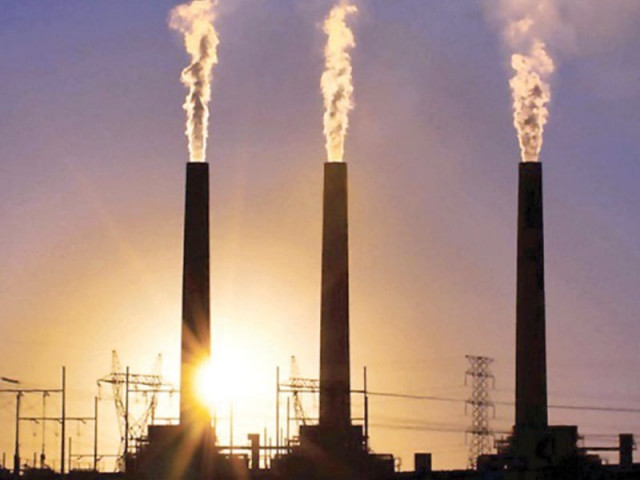Switch to coal from oil taking too long: IPPs
Delay in finalising policy holding investors back, hurting energy sector .

The average fuel component of generation cost on furnace oil has gone from Rs12 per kilowatt hour in 2011 to around Rs16 in 2012. PHOTO: FILE
Unnecessary delay in finalising policy guidelines on converting furnace oil-fired power plants to coal is testing the nerves of Pakistani and foreign investors, some of whom stand ready to start the work, industry officials say.
Soon after coming to power last year, the Pakistan Muslim League- Nawaz (PML-N) government resolved the contagious circular debt crisis by releasing Rs500 billion to energy firms and, in return, asked a few independent power producers (IPP) to switch from oil to coal.

The National Electric Power Regulatory Authority (Nepra) had to come out with policy including a tariff for the IPPs, which switch to coal. The authority’s existing framework for power plants, which use coal, covers completely new projects.
“These are complicated matters involving negotiations over multiple subjects,” said a senior official of an IPP. “But considering the urgency, government should have moved swiftly.”
IPPs like the Hub Power Company (Hubco) can only start work on the project after Nepra makes amendment to securities and other terms for its existing plant.
The vicious cycle of debt has once again bogged down energy supply chain as power distributors delay payments to generators who, in turn, face difficulty in clearing dues of fuel suppliers like Pakistan State Oil.
Everyone now agrees that Pakistan’s energy woes in part stem from an expansive fuel mix. According to Nepra’s last report on power industry, such a move is imperative.
“The average fuel component of generation cost on furnace oil has gone from Rs12 per kilowatt hour in 2011 to around Rs16 in 2012,” it said, adding that “generation cost on coal is around Rs3 per unit.”
The regulator also says that cost of setting up hydro and coal-based machines in relatively higher but their costs per unit remain lower than furnace oil-based generation.
[infogram url="" height="810"]
K-Electric’s dilemma
K-Electric, formerly Karachi Electric Supply Company, decided to use coal even before the government came out with its proposal in mid 2013.
“We started work three years back,” said Naveed Ahmed, the Chief Strategy Officer. “The tariff petition was filed early last year and we are still waiting for negotiations to start.”
The company has already engaged an engineering, procurement and construction contractor− China’s Harbin Electric International− and lined up private equity investors.
“All the legal documents have been submitted and I believe it shouldn’t take Nepra more than two weeks to come up with a reply,” said Ahmed.
K-Electric will lease two of its Bin Qasim power plant units for 20 years to the investors who will spend around $300 million on the conversion. The capacity of these 320 megawatts (MW) units will also be increased to 420MW.
Unlike other IPPs, the power utility’s existing plants do not operate under a fixed internal rate of return regime. Instead, K-Electric has an efficiency based formula to determine the return.
“I must stress that Nepra’s acting chairman Khawaja Naeem is very cooperative,” said Ahmed. “But it has been a long wait for the investors, which is not good.”
K-Electric is the only company in the advanced stage of undertaking the coal conversion projects, according to the Marine Group of Companies, which is building a dirty terminal at Port Qasim with an annual capacity to handle 15 million tons of coal, cement and clinker.
The two companies have already signed an agreement to handle 5 million tons of coal.
Industry officials say one reason for delay in finalising the policy could be fear of being persecuted by the courts. “Bureaucrats don’t want to be seen as giving undue benefit to private enterprise. Perhaps they are being too cautious.”
Nepra’s Naeem did not respond to our phone calls.
Published in The Express Tribune, February 4th, 2014.
Like Business on Facebook, follow @TribuneBiz on Twitter to stay informed and join in the conversation.



















COMMENTS
Comments are moderated and generally will be posted if they are on-topic and not abusive.
For more information, please see our Comments FAQ